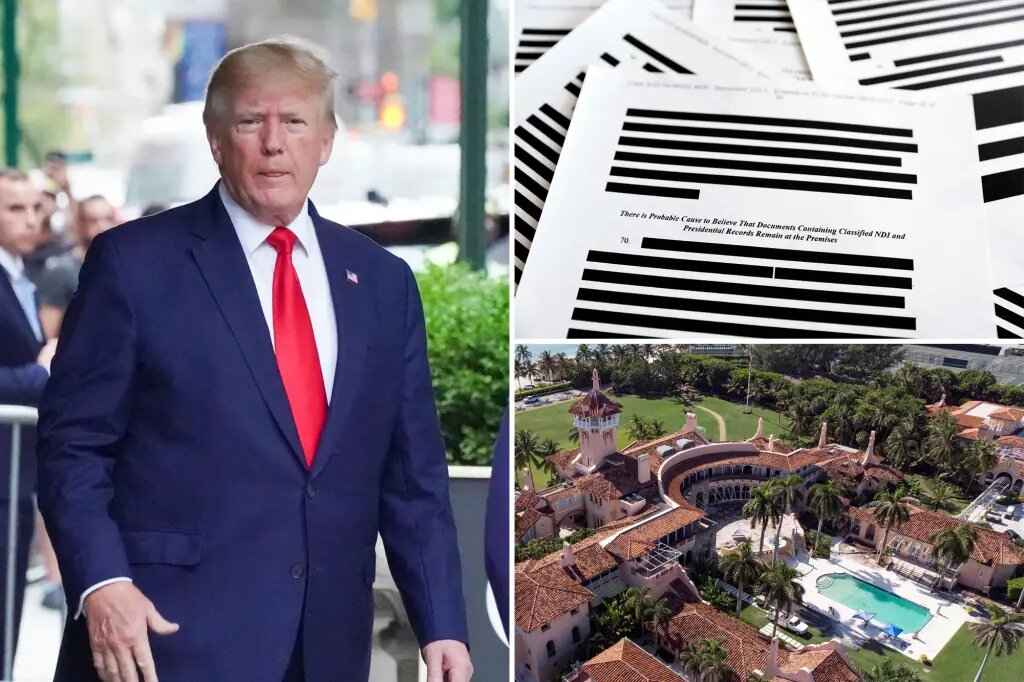A federal judge released more of an FBI affidavit on Tuesday that explains why agents were allowed to search the Florida home of former President Donald Trump. The documents show that agents got a hard drive after getting a subpoena for surveillance footage from inside Mar-a-Lago.
Last month, a version of the affidavit with a lot of information taken out was made public. The Justice Department asked for permission to show more of it after lawyers for Trump said that a grand jury subpoena from June asked for video footage from cameras near the Mar-a-Lago storage room.
“Since those parts of the grand jury’s investigation have now been made public, there is no longer any reason to keep them sealed (i.e. redacted) in the filings in this case,” department lawyers wrote.
The new parts of the FBI agent’s affidavit show that the FBI sent a subpoena for the footage on June 24. This came after agents saw 50 to 55 boxes of records in the storage room at Mar-a-Lago a few weeks earlier.
The affidavit says that on July 6, the Trump Organization gave a hard drive in response to the subpoena.
The video could be an important part of the investigation. For example, it could help agents figure out if anyone has tried to stop the investigation.
In a separate filing, the Justice Department said that it has “developed evidence that government records were likely hidden and removed from the Storage Room and that efforts were likely made to stop the government’s investigation.”
Since Trump left the White House, the Justice Department has been looking into whether or not top-secret information and other classified documents were kept at Mar-a-Lago. During their search of the home and club on August 8, FBI agents said they found more than 11,000 documents and 1,800 other items, of which about 100 were marked as classified.
On the same day, the Justice Department asked U.S. District Aileen Cannon to let go of her grip on the investigation’s most important parts. Last week, Cannon agreed to the Trump team’s request for a third party to look over the documents that were seized and remove from the investigation any records that might be protected by executive or attorney-client privilege.
She also notified the department to stop looking at the records until there was a new court order or the review by the yet-to-be-named special master was finished.
Last week, the department asked Cannon to stop her order and told the judge on Tuesday that its investigation would be hurt if it couldn’t look at the classified documents right away.
“The government and the public have an interest in making sure that criminal laws are enforced quickly,” the lawyers wrote. “This is especially true in cases like this one, where there may have been attempts to stop the investigation.”
On Monday, Trump’s team asked the judge to keep her order.
His lawyers asked about the current classification status of the documents and pointed out that a president has full power to declassify information, but they were careful not to say that Trump had done so.

